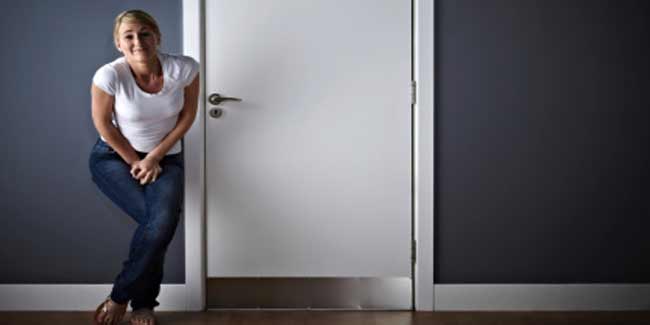
Getting a good night’s sleep is hard when nature keeps calling all night. Called “nocturia,” having to go to the loo during the night is actually incredibly common—and according to a research in The Journal of Urology it happens more often to women than men. In fact, the research found that up to 44 percent of women aged 20 to 40 get up to pee at least once in the night, while up to 18 percent pee at least twice a night.
Not only is having to pee during the night super annoying, but by interfering with the quality of your sleep, it can zap your energy levels, and overall health. Plus, it could be a symptom of an underlying health problem.
Do You Really Have to Go?
Okay, we’re sure your immediate answer is an emphatic yes, but think about it for a minute. Oftentimes, women who pee frequently during night aren’t actually waking up because they need to go. Your brain has a mechanism that works to keep you from having to interrupt your sleep to pee. Oftentimes, women simply wake up during the night and figure they might as well go while they are conscious. If that’s your story, insomnia may be a bigger issue than bladder control.
On the other side, how much are you actually letting out when you get up to go to the loo? If you only have a few little tinkles to let out, you may be suffering from overactive bladder.
Meanwhile, if your bladder is filled, you may be consuming too many liquids—including diuretics like caffeine and alcohol—close to bedtime. Caffeine triggers overactive bladder, which often leads to the need to urinate frequently during the day and night.
Cutting back on your fluid intake after 6 p.m. and limiting on caffeine intake till morning can help. However, in general, people who suffer from nocturnia generally have multiple underlying factors, so switching up the intake of fluid may not be enough to help you to make it 'til morning.
Is Your Middle-of-the-Night Peeing a Bigger Issue?
The conditions that could contribute to frequent urination—including during the night—are neverending. But the big problems include diabetes which may be new or poorly controlled and heart disease too. Gestational diabetes can also be counted in this.
Any condition which alters the anatomy of the urinary tract, such as a prolapsed uterus, plays a good role and so can other down-there issues, that include urinary tract infections and pelvic inflammatory disease. Interstitial cystitis is an inflammation that occurs in the lining of bladder which causes frequent urination, but its intense pain is usually what brings people to the doctor. Few medicines can also increase your need to go.
And very much every woman could get some bladder benefits from strengthening of pelvic floor muscles, which contributes to hold it and also empty your bladder when it's full. In some cases, women relieve their nocturnia through physical therapy exercise like kegels, that focuses on strengthening the pelvic floor muscle.
Images: Getty
Read more articles on Understand Urinary Incontinence.
How we keep this article up to date:
We work with experts and keep a close eye on the latest in health and wellness. Whenever there is a new research or helpful information, we update our articles with accurate and useful advice.
Current Version
